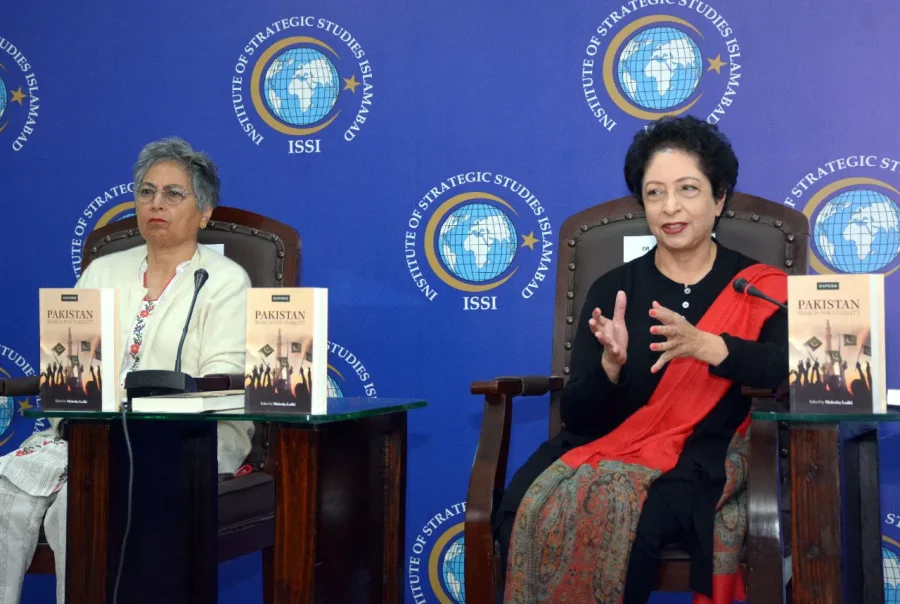Zubair Qureshi
The book “Pakistan: Search for Stability” edited by Pakistan’s former Ambassador to the US, the UN and High Commissioner to the UK Dr Maleeha Lodhi and other leading intellectuals and thinkers of the country, is a fair and candid account of the chequered course of Pakistan’s history, political course, social development, particularly its Foreign Policy and discusses in details the landmark achievements as well as setbacks.
These views were exoressed by former ambassadors, senior journalists and exoerts at the launching ceremony of the book organized by the Centre for Strategic Perspectives (CSP) at the Institute of Strategic Studies Islamabad (ISSI) here on Monday.
Two other contributors to the book — Mr. ZahidHussain, a prominent journalist; and Dr. DushkaSaiyid, a former professor of History at QAU — were also present on the occasion.
The event was attended by eminent members of foreign and civil services, academia, civil society, media, and the diplomatic corps in Islamabad.
In her address, Dr. Lodhi emphasized the importance of seeking opportunities amidst crises. She noted that in Pakistan, political dynamics have yet to catch up with the socio-economic changes occurring in the country. Dr. Lodhi lauded all the contributors to the book, acknowledging their comprehensive set of policy guidelines covering a wide array of topics. Furthermore, she highlighted Pakistan’s youthful and highly talented demographic, expressing optimism about their potential to drive positive political change. However, she lamented that the governance structure remains entrenched in outdated thinking, and the situation marked by a number of political, social and structural fault-lines. The polarisation and absence of consensus, mutual respect and tolerance within Pakistan’s political system, she argued, contributes to destabilization.
Moreover, Dr. Lodhi pointed out the economic challenges facing Pakistan, including its entrapment in a debt cycle leading to increased inequality perpetuated by a minority elite’s control. She remarked that the book aims to chart a course towards overcoming the existing fault-lines within Pakistan’s system and needs to be read with care and attention by the policy circles.
Dr. DushkaSaiyid emphasized the importance of educating the younger generation about historical figures, particularly highlighting the life and teachings of Pakistan’s founder, Quaid-e-Azam Mohammed Ali Jinnah. In her talk, she navigated through historical contexts to emphasize the enduring relevance of Jinnah’s principles in shaping a progressive and united Pakistan for generations to come. She underscored Jinnah’s democratic, secular and inclusive principles as well as his emphasis on constitutionalism, education and women emancipation as essential for contemporary Pakistan, which she has elaborated upon in her chapter in the book.
Mr. ZahidHussain stressed the necessity for policymakers to glean insights from historical precedent, which has often resulted in Pakistan facing persistent crises, whether in politics or economics. He noted that the internal security situation was further exacerbated by challenges such as climate change and population growth. Highlighting concerns at three of Pakistan’s four borders, he particularly emphasized the serious situation along the Pakistan-Afghanistan border.









